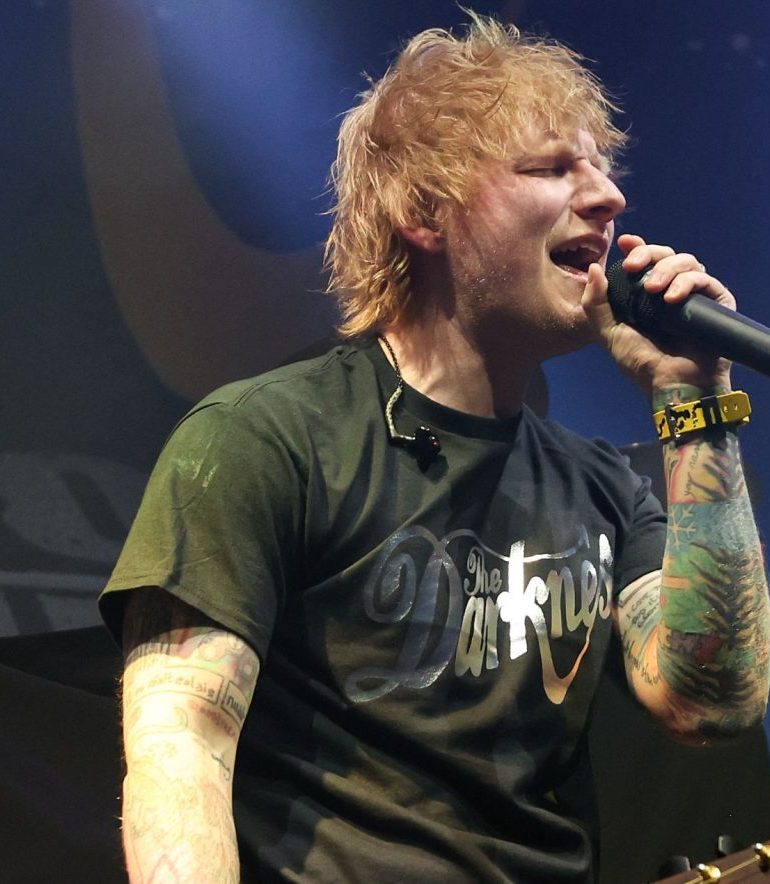Global pop icon Ed Sheeran is no stranger to headlines, but his latest remarks on cultural identity have ignited an intense public conversation. The singer-songwriter, who has dominated the music charts for more than a decade, recently doubled down on comments about his Irish roots, saying critics have no right to define his heritage or the culture he grew up with.
The discussion began when Sheeran appeared on the Louis Theroux Podcast and openly stated that he “identifies culturally as Irish.” Though born and raised in England, Sheeran’s father is Irish, and the star has often woven elements of Irish culture into his life and music. However, his statement sparked debate across social media, with some questioning whether he could authentically claim that identity.
In a follow-up interview on The Tracy Clifford Show, Sheeran addressed the backlash directly. He acknowledged that some of the criticism might stem from what he called “gatekeeping” — the idea that certain cultural identities are guarded and accessible only to those who meet strict criteria. Yet, he remained firm in his stance, insisting that his personal experiences and upbringing give him every right to claim Irish heritage.
“No one can tell me what my childhood was, or what the culture that I grew up with,” Sheeran said, defending his position. He went on to explain that his upbringing was deeply immersed in Irish music, humor, and traditions — elements that shaped not only his personal life but also his artistic identity. From listening to classic Irish folk songs at home to absorbing the distinctive wit of Irish storytelling, Sheeran described these influences as a foundational part of who he is.
This cultural connection isn’t just a sentimental claim — it’s something Sheeran continues to actively celebrate in his career. As he gears up for the release of his highly anticipated new album, Play, on September 12, the singer has been leaning into these roots more than ever. In the lead-up to the album drop, Sheeran has been surprising fans with intimate, low-key gigs in unexpected locations, bringing his music back to the kind of small venues where he first built his fanbase.
One of the standout moments in this promotional run came during an impromptu performance at The Sky And The Ground Pub in Wexford, Ireland. Without prior announcement, Sheeran took the stage before a packed crowd, delivering a set that blended his biggest hits with traditional Irish folk tunes. The audience — a mix of longtime locals and visiting fans — sang along to every note, creating the kind of warm, communal atmosphere that Sheeran says feels like home.
The performance was more than just a musical treat; it was a living example of the cultural fusion Sheeran has been talking about. By intertwining his chart-topping pop songs with Irish folk classics, he offered a personal statement on how identity can be both inherited and shaped by lived experience.
For Sheeran, the criticism hasn’t dampened his resolve. If anything, it has only strengthened his desire to speak openly about cultural identity and to challenge rigid definitions of belonging. “It’s part of my culture,” he emphasized, suggesting that identity isn’t limited to where one is born but is also molded by the traditions, values, and communities that influence a person’s life.
With Play just weeks away from release, it’s clear that Sheeran’s blend of heartfelt storytelling, cross-cultural influences, and fan-focused performances will continue to define his work. Whether his critics agree with his perspective or not, Ed Sheeran’s message remains the same: identity is deeply personal, and no one else can rewrite the story of your own upbringing.

